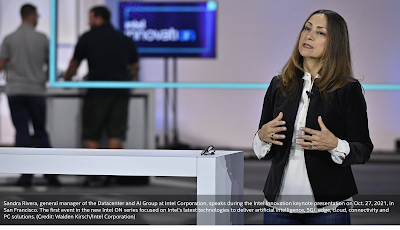Intel and Google Cloud announced a deep collaboration to develop an ASIC P4-programmable infrastructure processing unit (IPU).
Code-named “Mount Evans,” this open solution supports open source standards, including an infrastructure programmer development kit (IPDK) to simplify developer access to the technology in Google Cloud data centers.
Machine learning, large-scale data processing and analytics, media processing, and high-performance computing are all workloads that can benefit from the IPU. Another key design ambition is to separate infrastructure management functions from client workloads, thereby ensuring true bare-metal performance. Google and Intel also agreed to collaborate on open standards for transport and on P4 for programmable packet processing.Intel said its goal is to enable developers to create an end-to-end programmable network based on Intel Xeon Scalable processors and next-generation Intel Xeon D processors, IPUs, and its new, P4-programmable Intel Tofino intelligent fabric processor (IFP) switch.AT&T, supported by an established ecosystem of solution providers, will use Intel as a silicon provider for deployment of its forthcoming virtualized radio access network (vRAN), giving it the flexibility to bring automation and cloud-like capabilities into its network, along with optimizations for performance, cost and operational efficiency.
An archived webcast of the Intel Innovation 2021 event is posted.Discussion of the IPU between Intel CEO Pat Gelsinger and Google Fellow Amin Vahdat begins around 1:37:00
https://www.intel.com/content/www/us/en/newsroom/news/innovation-event-livestream-replay.html#gs.essztu

















